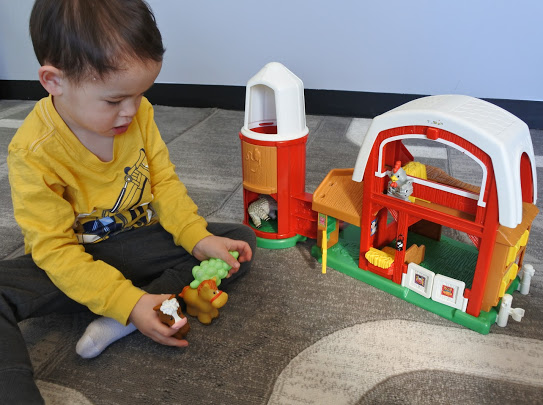
FAQ
Imagine Pediatric Therapy has been Chicagoland’s leading provider of Pediatric occupational therapy, physical therapy, and speech-language therapy since 2009. We provide individualized therapy services in a multi-disciplinary setting with a holistic intervention approach.
Our skilled, experienced therapists use the latest evidence-based intervention techniques to help your children from birth to 14 years old gain the life skills needed to maximize their independence.
If you are concerned that your child may need services or is not meeting age appropriate milestones, please contact our office for a free consultation.
Main FAQ
Pediatric Occupational Therapy helps your child develop, recover or maintain functional and independent skills for home, school, and community environments. These may include:
- Fine motor strength, endurance, control, and coordination
- Gross motor strength, endurance, control and coordination
- Activities of daily living (ADLs)
- Visual-motor and visual-perceptual skills
- Social and peer interaction skills
- Executive functioning skills
- Sensory Integration
Pediatric Speech-Language Therapy treats problems with speaking, language, communication and feeding in children. Areas of concern include:
- Receptive Language
- Expressive Language
- Apraxia of Speech
- Swallowing
- Food Aversion
- Articulation and Phonology
- Oral Motor
- Pragmatic/Social Language
- Memory
- Cognition
- Auditory Processing
- Fluency
Pediatric Physical Therapy treats and manages physical disabilities, malfunction or pain in children without medicine, surgery or radiation, improving and strengthening muscle tone, strength, range of movement, quality of movement, eye-hand coordination, attention to task, and sensory integration. Areas of concern include:
- Gross motor development
- Muscle tone, strength, and endurance
- Posturing and postural control
- Pre-gait and gait training
- Locomotion patterns
- Neuromuscular function
- Musculo-skeletal conditions
- Body alignment
- Environmental adaptations
- Splinting/bracing/orthotics
Sensory integration is the processing of perceiving, organizing, and interpreting incoming information from the body and environment to engage appropriately in meaningful activities throughout the day. All people receive information from the following sensory systems: auditory, visual, tactile (touch), smell, taste, proprioceptive (body position), vestibular (movement), and interoception (internal sensations). The nervous system is responsible for organizing incoming information from the sensory systems, successfully modulating this information, and regulating the body to promote appropriate behaviors supporting engagement in everyday activities. Successful sensory processing, modulation, and regulation skills are important for children to participate in play, self-care, social interaction, and many other childhood occupations. In children, effective sensory integration promotes appropriate development of motor, social-emotional, executive functioning, and many other skills. Deficits in sensory integration can hinder your child’s performance in activities of daily living, play, social interaction, school participation, and use of appropriate behavior. Additionally, difficulties appropriately processing, modulating, and regulating sensory input has the potential to contribute to motor, language, executive functioning, and attention deficits.
Signs your child may be experiencing difficulties with sensory processing and integration include
- Over sensitivity to touch, textures, sounds, other people, and bright lights
- Difficulty with self-soothing
- Frequent meltdowns
- Excessive clumsiness with poor body awareness
- Over-activity
- Easily distracted
- Difficulty sitting still
- Decreased awareness to pain
- Difficult time making friends
- Decreased eye contact and/or social interaction
If you believe your child may be experiencing challenges with sensory processing and integration, they may benefit from an occupational therapy evaluation. Occupational therapists are skilled professionals with education and training in sensory-based evaluation and treatment. Occupational therapists can assess your child’s sensory processing skills, determine their unique sensory needs, and work with you and your child to develop a sensory-based treatment plan to meet your goals. Through sensory-based treatment, your occupational therapist can assist your child in processing sensory information, determine appropriate sensory supports for regulation, and modify an environment to promote fun and meaningful engagement throughout their day.